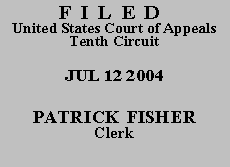

| EDUARDO URIOSTEGUI,
Plaintiff-Appellant, v. KLINGER CONSTRUCTORS INC., Defendant-Appellee. |
|
Plaintiff Eduardo Uriostegui appeals the district court's grant of summary judgment in favor of defendant Klinger Constructors Inc. on his claims of national origin discrimination and retaliation under Title VII, 42 U.S.C. §§ 2000e through 2000e-17.(1) Mr. Uriostegui alleged that he was terminated on the basis of his national origin and that, in response to Mr. Uriostegui's discrimination complaint, Klinger retaliated by giving him bad employment references after his termination. On appeal, Mr. Uriostegui argues that the district court erred in finding that he failed to rebut Klinger's legitimate, non-discriminatory reason for the termination and that he had not exhausted his administrative remedies on his retaliation claim. We review the district court's grant of summary judgment de novo, applying the same standard under Fed. R. Civ. P. 56(c) as the district court. See Simms v. Okla. ex rel. Dep't of Mental Health & Substance Abuse Servs., 165 F.3d 1321, 1326 (10th Cir. 1999).
Having reviewed the briefs, the record, and the applicable law pursuant to the above-mentioned standard, we conclude that the district court correctly decided Mr. Uriostegui's national origin claim. We therefore AFFIRM the judgment in favor of Klinger on this Title VII claim for substantially the same reasons stated by the district court in its Memorandum Opinion of June 6, 2003.(2)
On the retaliation claim, Mr. Uriostegui failed to allege retaliation in his EEOC complaint and the district court found that Mr. Uriostegui's retaliation claim was not reasonably related to his discrimination claim. Mr. Uriostegui, therefore, failed to exhaust his administrative remedies, which is a prerequisite to bringing suit in federal court. See Davidson v. Am. Online, Inc., 337 F.3d 1179, 1183 (10th Cir. 2003).
The district court stated that Mr. Uriostegui's retaliation claim was not reasonably related to his discrimination claim because "the act allegedly giving rise to the claim did not occur until after his original claim had been dismissed by the EEOC." Aplt. App. at 211. This statement is not factually accurate. The act allegedly giving rise to Mr. Uriostegui's retaliation claim occurred before the dismissal of the EEOC charge. Because there has been an intervening change in the law, however, there is no reversible error.
Previously, a plaintiff could seek judicial relief on claims not listed in the original EEOC charge if the new claims were "like or reasonably related to the allegations of the EEOC charge . . . " Martinez v. Potter, 347 F.3d 1208, 1210 (10th Cir. 2003) (quotation omitted). This court explained in Martinez, however, that National R.R. Passenger Corp. v. Morgan, 536 U.S. 101 (2002) abrogated this so-called "continuing violation doctrine" so that unexhausted claims involving discrete employment actions are no longer viable. Id. Instead, "each discrete incident of [discriminatory or retaliatory] treatment constitutes its own unlawful employment practice for which administrative remedies must be exhausted." Id. (quotation omitted). Here, Mr. Uriostegui's claim that Klinger retaliated against him by giving a bad employment reference after his termination is a discrete incident of retaliatory treatment, which required him to file a separate EEOC claim. Because Mr. Uriostegui failed to exhaust his administrative remedies, we AFFIRM the district court's judgment in favor of Klinger on the retaliation claim.
Entered for the Court
Circuit Judge
*. This order and judgment is not binding precedent, except under the doctrines of law of the case, res judicata, and collateral estoppel. The court generally disfavors the citation of orders and judgments; nevertheless, an order and judgment may be cited under the terms and conditions of 10th Cir. R. 36.3.
1. Mr. Uriostegui does not appeal the district court's ruling on his hostile work environment claim. See Aplt. Br. at 2.
2. The parties consented to proceed before a United States Magistrate Judge. The Magistrate Judge's Memorandum Opinion is therefore the final order of the district court.